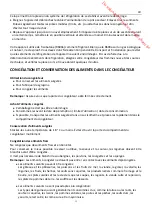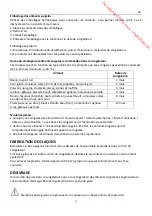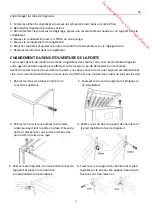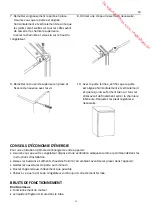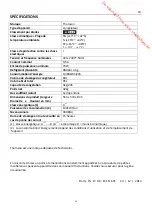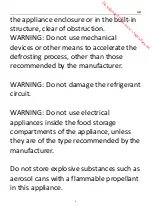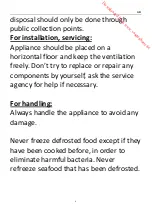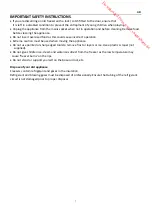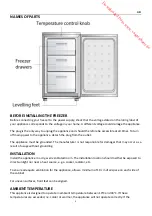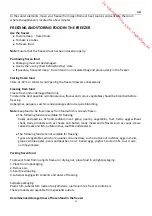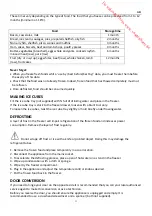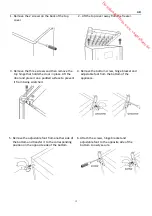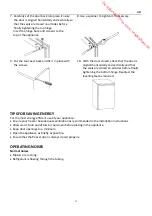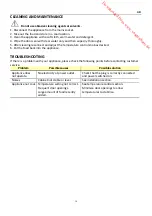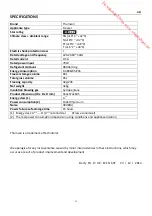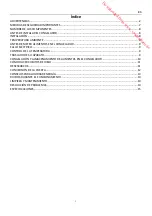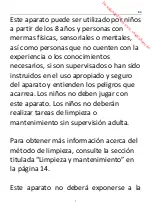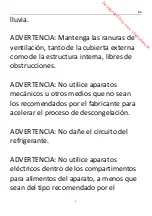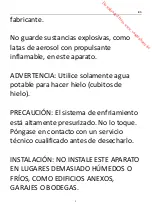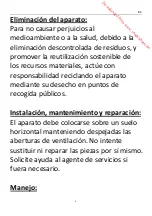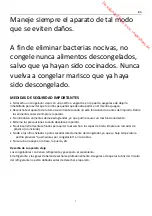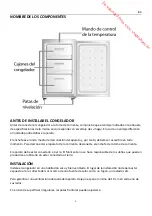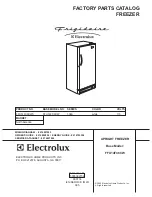
GB
9
ambient
temperatures
are
exceeded
for
long
periods,
the
temperature
in
the
freezer
will
rise
above
‐
18°C
and
food
spoilage
may
occur.
BEFORE
PLACING
FOOD
IN
THE
FREEZER
Remove
all
packaging.
Allow
the
appliance
to
run
empty
for
2
–
3
hours
so
the
compartment
can
cool
to
the
appropriate
temperature.
Clean
the
inside
of
the
appliance
with
warm
water
and
a
little
liquid
detergent
to
remove
manufacturing
and
transportation
dust.
POWER
FAILURE
If
there
is
a
power
failure,
do
not
open
the
door.
Frozen
food
should
not
be
affected
if
the
power
failure
lasts
for
less
than
15
hours.
Do
not
refreeze
frozen
foods
that
have
thawed
completely.
The
food
may
be
dangerous
to
eat.
TEMPERATURE
CONTROL
The
freezer
is
controlled
with
a
temperature
control
knob
located
inside
the
appliance.
Adjust
the
control
knob
as
desired
to
suit
your
individual
preference.
is
warmest
setting
4
is
coldest
setting
The
running
time
and
temperature
are
affected
by
where
the
freezer
is
located,
how
often
the
door
is
opened
and
the
temperature
of
the
room
the
freezer
is
located
in.
When
you
use
the
appliance
for
the
first
time
or
after
defrosting,
adjust
the
control
knob
to
the
coldest
setting
for
at
least
2
hours
before
introducing
food
to
be
stored,
and
then
readjust
to
the
middle
setting.
MOVING
YOUR
APPLIANCE
If
the
appliance
is
turned
off
for
any
reason,
wait
for
10
minutes
before
turning
it
back
on.
This
will
allow
the
refrigeration
system
pressures
to
equalise
before
restarting.
Turn
off
the
appliance
and
unplug
it
from
the
mains
socket.
Remove
all
food.
Also
remove
all
mobile
parts
(drawers,
etc.)
or
fix
them
into
the
freezer
to
avoid
any
shock.
Relocate
and
install.
If
the
appliance
has
been
left
on
its
side
for
any
length
of
time,
leave
it
standing
upright
for
at
least
10
minutes
before
turning
on.
Your
appliance
uses
isobutane
(R600a)
as
a
refrigerant.
Although
R600a
is
an
environmentally
friendly
and
natural
gas,
it
is
explosive.
Therefore
you
should
be
careful
during
shipment
and
installation
to
prevent
your
appliance’s
cooler
elements
from
being
damaged.
In
the
event
of
a
leak
caused
by
damage
Downloaded from www.vandenborre.be

